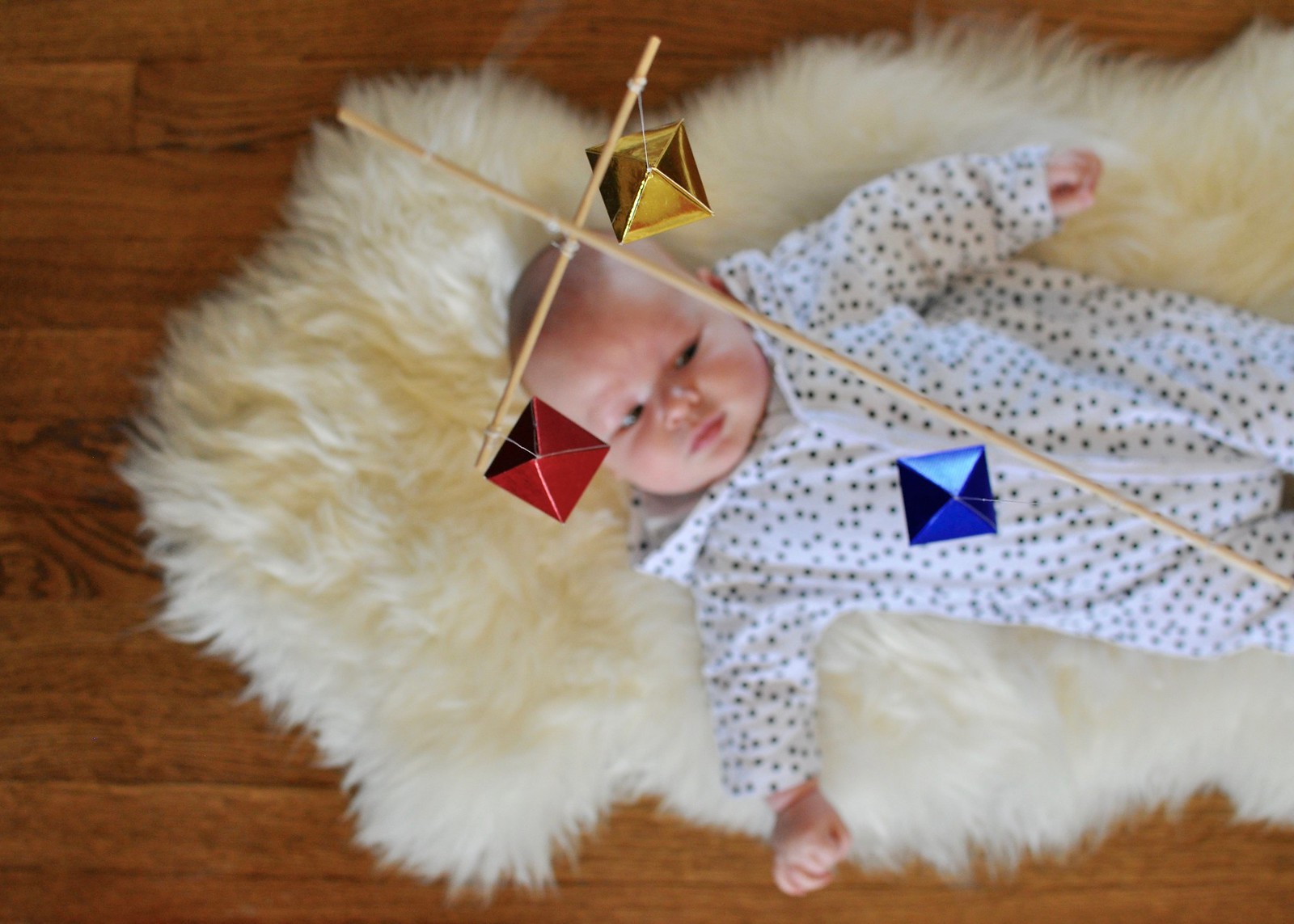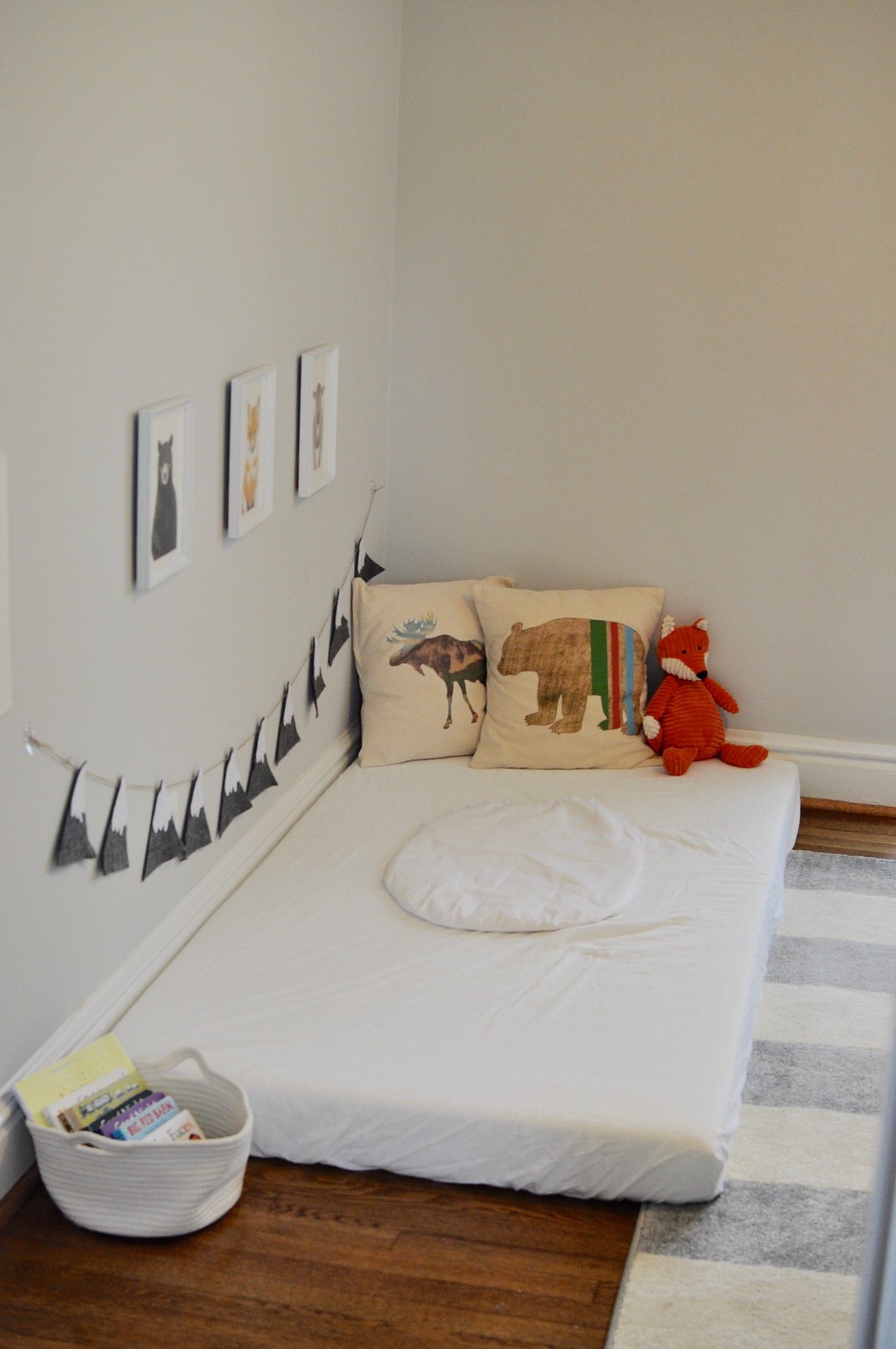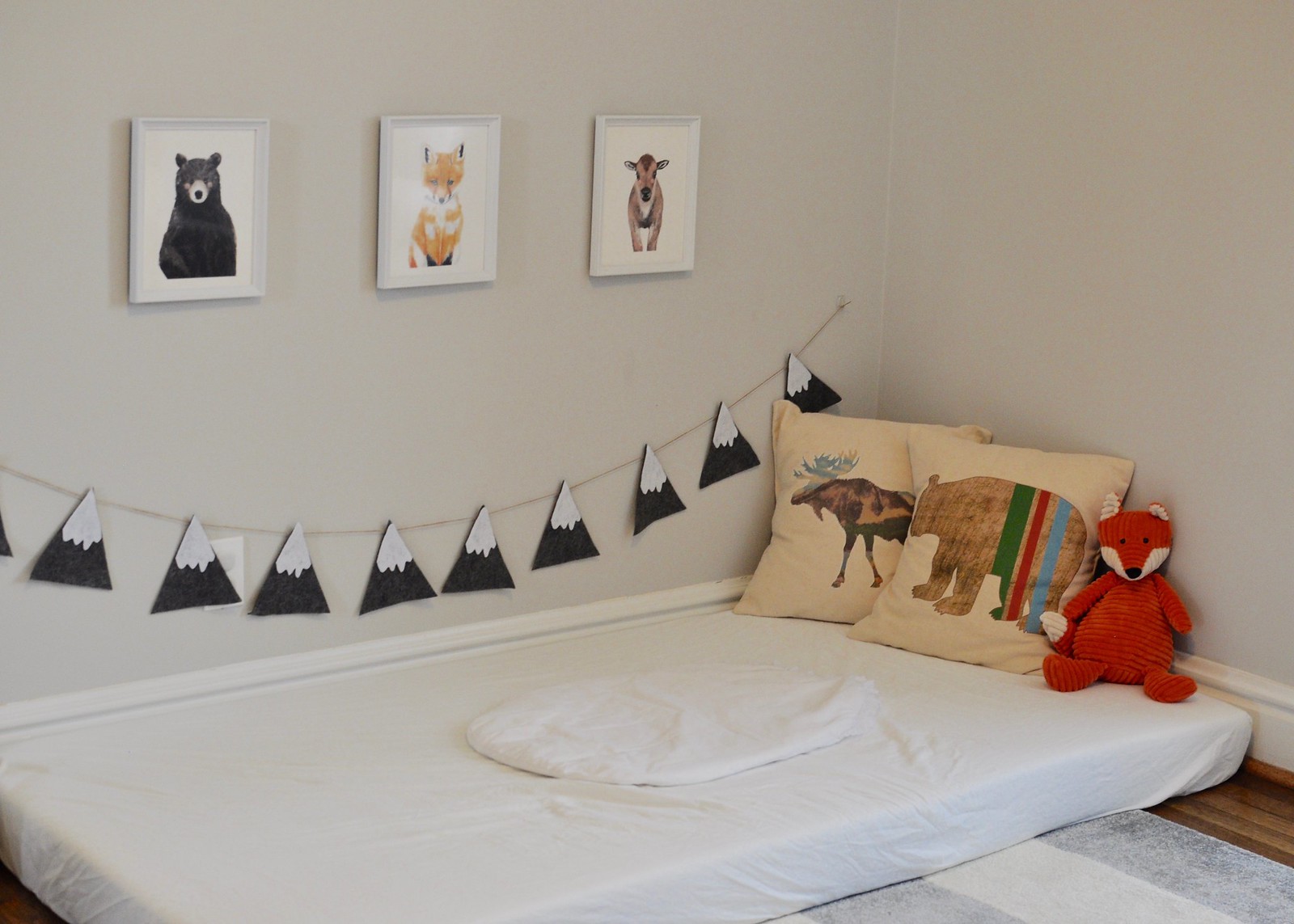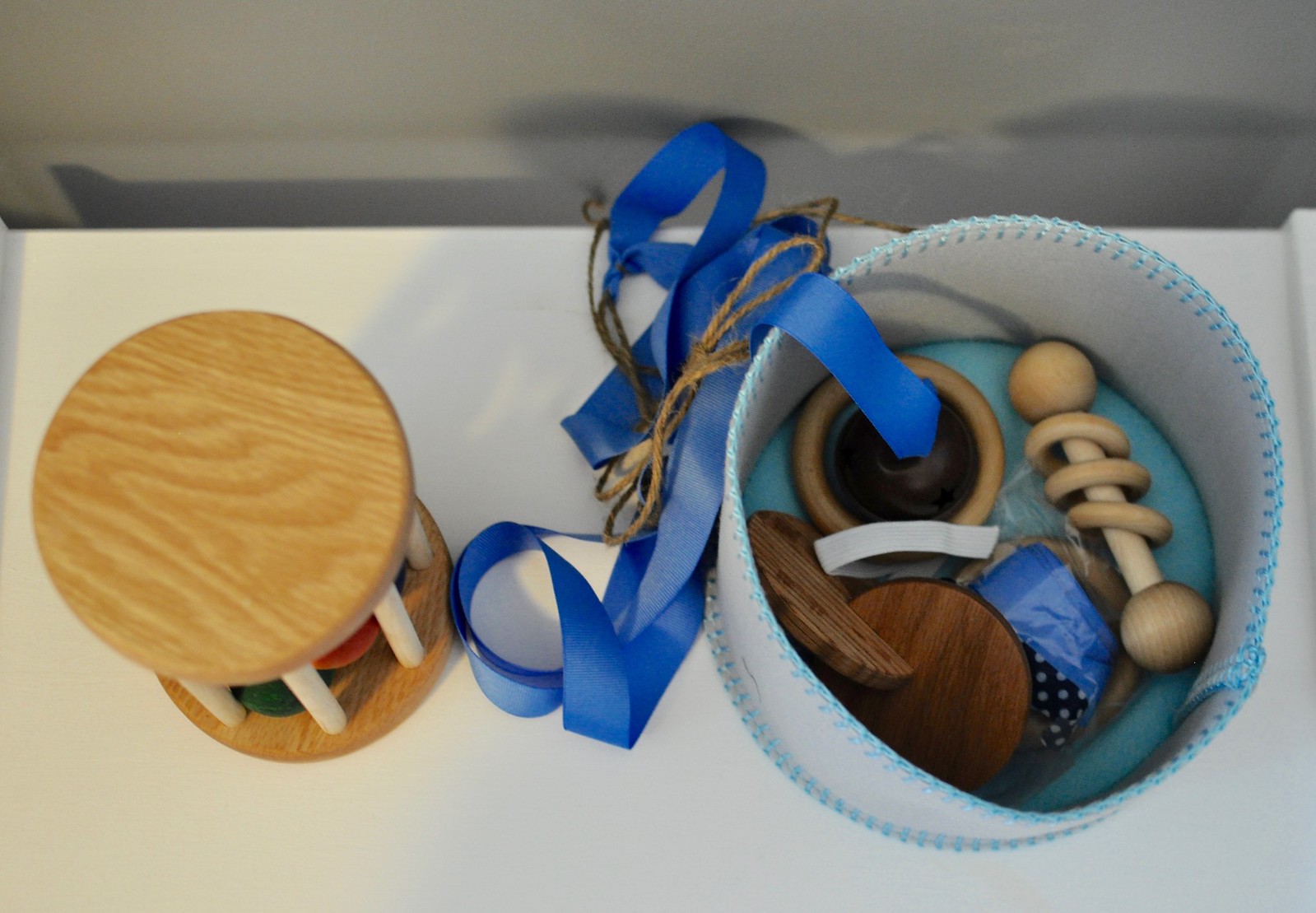Montessori At Home: An Infant Space
 Montessori education typically starts in a school setting when a child reaches around 2 1/2 years old. However, the Montessori environment is also accessible to parents who are just starting their families! Jess Jente, Villa di Maria's beloved P1 Assistant, who is currently on maternity leave (but returning to the classroom soon!), invited us into her home to meet her new baby boy Sam, and to share with us her infant Montessori space.
Montessori education typically starts in a school setting when a child reaches around 2 1/2 years old. However, the Montessori environment is also accessible to parents who are just starting their families! Jess Jente, Villa di Maria's beloved P1 Assistant, who is currently on maternity leave (but returning to the classroom soon!), invited us into her home to meet her new baby boy Sam, and to share with us her infant Montessori space. 
 A tenant to the Montessori visual experience is a calm, non-cluttered space. Walking into Sam's room, I was struck by how quiet, peaceful, and visually appealing it was. There were no bright flashing lights and noisy battery-operated toys, just a calm, soothing space, which is preferable to a child who is in the midst of the period of the Absorbent Mind. Sam, who is nearly 3 months old, takes naps on the mattress above, but still sleeps in his parents' room. Eventually, he will sleep in his bed at night as well.Jess shared that she and her husband purchased this thin, comfy mattress at Ikea. It is close to the floor to facilitate Sam's independence, and for safety.
A tenant to the Montessori visual experience is a calm, non-cluttered space. Walking into Sam's room, I was struck by how quiet, peaceful, and visually appealing it was. There were no bright flashing lights and noisy battery-operated toys, just a calm, soothing space, which is preferable to a child who is in the midst of the period of the Absorbent Mind. Sam, who is nearly 3 months old, takes naps on the mattress above, but still sleeps in his parents' room. Eventually, he will sleep in his bed at night as well.Jess shared that she and her husband purchased this thin, comfy mattress at Ikea. It is close to the floor to facilitate Sam's independence, and for safety. On one wall, many beautifully-colored mobiles hang. Jess switches them out frequently for Sam to look up at while he is on the floor. The blue Gobbi Mobile consists of 5 spheres that gradually change color from light blue to dark. The octahedrons seen in the first photo of this post are an introduction to geometric proportion, and make an interesting Montessori mobile for an infant.
On one wall, many beautifully-colored mobiles hang. Jess switches them out frequently for Sam to look up at while he is on the floor. The blue Gobbi Mobile consists of 5 spheres that gradually change color from light blue to dark. The octahedrons seen in the first photo of this post are an introduction to geometric proportion, and make an interesting Montessori mobile for an infant. Above is a large bell hanging from a ribbon, which will encourage Sam to coordinate his movements once he bumps it by accident a few times and hears the sound it makes. He's getting closer - look at those little arms waving!
Above is a large bell hanging from a ribbon, which will encourage Sam to coordinate his movements once he bumps it by accident a few times and hears the sound it makes. He's getting closer - look at those little arms waving!  There is a simple basket of board books beside Sam's bed, which will be easy for him to access once he starts crawling. A Montessori infant's bedroom should facilitate movement. The low shelves, low bed, and items that are within reach, will create this environment. As the child grows older, his space will adapt; "There is a mirror that can be hung on the wall that has a bar (similar to a ballet barre) that Sam will be able to pull himself up on for support when he gets older," Jess shares.
There is a simple basket of board books beside Sam's bed, which will be easy for him to access once he starts crawling. A Montessori infant's bedroom should facilitate movement. The low shelves, low bed, and items that are within reach, will create this environment. As the child grows older, his space will adapt; "There is a mirror that can be hung on the wall that has a bar (similar to a ballet barre) that Sam will be able to pull himself up on for support when he gets older," Jess shares.
 The mirror on the floor next to the movement area provides an infant with stimulation. He can see and study his own reflection as well as begin to connect his movements with those he sees in the mirror. When he has "tummy time," the mirror can also encourage him to lift his head to look directly at himself, providing an opportunity to strengthen his neck and body.
The mirror on the floor next to the movement area provides an infant with stimulation. He can see and study his own reflection as well as begin to connect his movements with those he sees in the mirror. When he has "tummy time," the mirror can also encourage him to lift his head to look directly at himself, providing an opportunity to strengthen his neck and body.
 Jess shares that Sam's favorite mobile right now is the one that holds the butterflies, which he finds mesmerizing!
Jess shares that Sam's favorite mobile right now is the one that holds the butterflies, which he finds mesmerizing! The materials above are within a crawler's reach. Notice that the shelves are open and uncluttered.
The materials above are within a crawler's reach. Notice that the shelves are open and uncluttered. From left to right: Ball cylinder, basket full of bell on a ribbon, interlocking discs, ring rattle. A set of all 6 the items on the shelf (both top and bottom) can be found here.
From left to right: Ball cylinder, basket full of bell on a ribbon, interlocking discs, ring rattle. A set of all 6 the items on the shelf (both top and bottom) can be found here. 
 Above, from left to right: Ball teether, bell cylinder, and bell rattle
Above, from left to right: Ball teether, bell cylinder, and bell rattle 



 What a lovely space for an infant. Thank you, Jess, for sharing Sam's beautiful space with us!For more information about creating an infant Montessori space, check out The Bambini Guide located right here in St. Louis!
What a lovely space for an infant. Thank you, Jess, for sharing Sam's beautiful space with us!For more information about creating an infant Montessori space, check out The Bambini Guide located right here in St. Louis!

